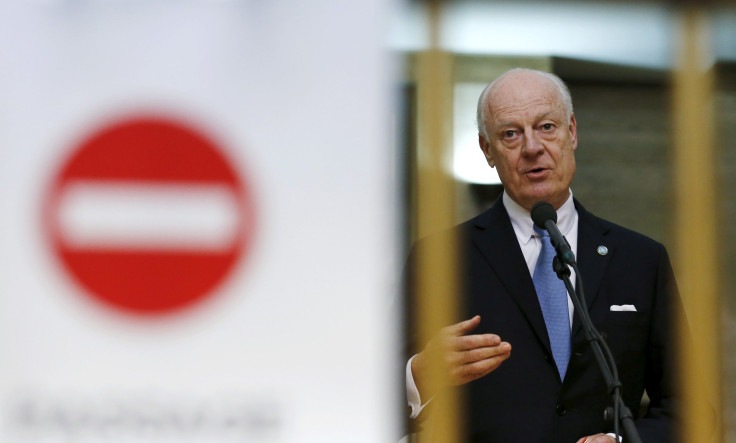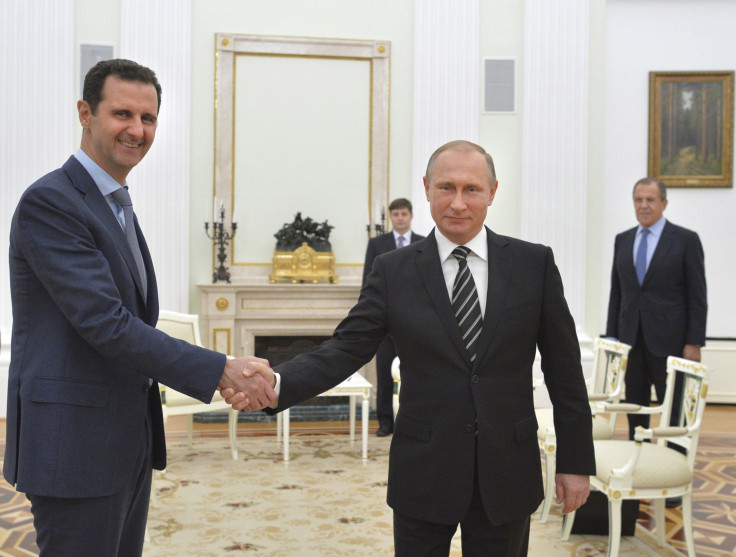Russian Media Doubt Success Of Syria Talks, Decry Presence Of ‘Terrorists’

MOSCOW — Russian media have welcomed without fanfare the opening of peace talks in Geneva aimed at ending fighting in Syria even as state-controlled news outlets echo the official Russian line by criticizing the inclusion of “terrorists” among the opposition groups invited to take part.
The main television channels in Russia, which are tightly controlled by the Kremlin, carried brief bulletins announcing the beginning of the negotiations.
Russia’s Channel One began its main news item announcing the start of talks with a statement from a Syrian government negotiator in Geneva: “Peace will come to Syria when Turkey, Jordan and Saudi Arabia stop sending terrorists.” But the Russian presenter added that the negotiations were “the week’s most important news: The world is trying to stop a war.”
Moscow is a staunch supporter of Syrian President Bashar Assad, and Russian jets began an intensive bombing campaign in the country in September in support of the regime’s forces. Western countries accuse Russia of attacking moderate rebel groups, while the U.K.-based Syrian Observatory for Human Rights said during the weekend that Russian bombs had killed 1,400 civilians.
In a column for state-owned Rossiyskaya Gazeta published Sunday, author Yevgeny Shestakov put at “close to zero” the negotiations’ chances of success.
“The puppet show opening in Geneva this weekend with its marionette actors —oppositionists of all colors whose strings are being pulled by their many sponsors in Turkey, and the monarchies of the Persian Gulf — will be doomed until the masters of this opposition farce do not agree with the other international players, including Iran, U.S. and Russia,” he wrote.

Other state-owned television programs ignored the beginning of the talks, focusing instead on the continuing fighting on the ground in Syria, where Assad’s troops have reportedly used Russian air support to make advances against the Islamic State group, aka ISIS, as well as more moderate, Western-backed rebel organizations.
A weekly agenda-setting news program, hosted by the controversial and fiercely pro-Kremlin presenter Dmitry Kiselyov, which was broadcast Sunday evening, did not mention the talks but showed a long report about the conflict, including shots of pro-regime fighters cheering, “Assad will prevail!” and wearing T-shirts with the face of a Russian pilot shot down and killed by a Turkish jet last year. Shots of Syrian army military operations against ISIS were interspersed with drone footage of the Syrian military's recent bombing of the southern suburbs of Damascus.
While there is extensive footage of the devastation wrought by Russian air assaults and offensives by the Syrian army aired on Russian television, state-owned media in the country do not even acknowledge the possibility that targets apart from those held by Islamic extremists are being attacked.
There has been widespread objection in state-controlled Russian media to the list of anti-government groups that were invited for talks in Geneva.
Some outlets have objected to the exclusion of Kurdish groups, but particularly fierce criticism has been reserved for reports that members of the Saudi Arabia-backed Jaysh al-Islam — officially classified by Russia as a terrorist organization — were traveling to Geneva.
One report on state-controlled television channel NTV over the weekend about Jaysh al-Islam's likely involvement was simply headlined: “A terrorist representative is going to the international talks in Geneva.”
© Copyright IBTimes 2025. All rights reserved.






















